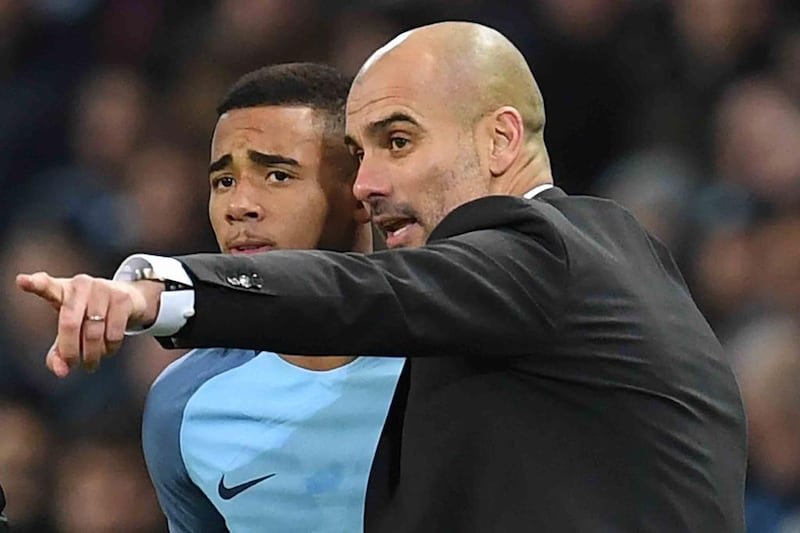The clock is ticking. There are two years left on Pep Guardiola’s Manchester City contract and, while there are hints he may extend it, his longest managerial stint to date lasted four seasons.
Suggest he could become the next Alex Ferguson or Arsene Wenger and he will respond with an emphatic rebuttal. And yet the sense is growing that Guardiola’s influence could be felt long after his departure. His imprint is ever more apparent in City’s creative contingent.
READ MORE:
- Interview: Luke Shaw determined to put best foot forward for Manchester United
Manchester City: Nolito heads home to join Primera Liga club Sevilla
Marcus Rashford: 'Evolution' continues at pace as Man United begin pre-season in style
Last Wednesday marked the second anniversary of Raheem Sterling’s move from Liverpool. Over those two years, City have signed six high-class midfielders or forwards – Sterling, Kevin de Bruyne, Ilkay Gundogan, Leroy Sane, Gabriel Jesus and Bernardo Silva – and Guardiola’s input is apparent in the recruitment of each, even if the first two arrived before him. His close relationship with director of football Txiki Begiristain means it is tempting to assume he was consulted.
De Bruyne beat Guardiola’s Bayern Munich charges to win the Bundesliga’s footballer of the year with Wolfsburg. It is certainly the case that Sterling was not Manuel Pellegrini’s choice, just as the Catalan was quick to call the winger during his troubled Euro 2016 to reassure him of his place in his plans.
Later additions could attribute their decisions to Guardiola. Gundogan said the City manager was “the best coach in the world”. Sane stated: “One of the reasons I decided to join City was Pep Guardiola. He can make me a more complete player.”
Jesus was wanted by many but contacted by fewer. Guardiola was the only manager who called the Brazilian. “My desire is to work with him,” he claimed. Most recently, Bernardo Silva said: “When I had the opportunity to play in the Premier League, to be trained by Guardiola, and to evolve with players like De Bruyne, [Sergio] Aguero and [David] Silva, I could not refuse.”
Each, of course, might have just been diplomatic or seeking to ingratiate himself with their new manager. Few players join a club and insist the manager is not a factor. Nevertheless, the paeans of praise seem revealing. They chose Guardiola. He chose them.
He is a manager who always argues that, far from being didactic, he adapts to his surroundings. It seems significant that three came from the Bundesliga where the up-tempo approach bears more similarities with the Premier League than the game in his native Spain.
Between them, they bring pace, width, versatility, technical excellence and unselfishness, qualities Guardiola values. None is a static, old-style centre-forward or a purely defensive midfielder. They ought to enable City to play fast, fluid football. They are workers who, particularly the younger among them, are works in progress. Each will respond to coaching. To varying degrees, they offer the potential of improvement, and Guardiola always lives in the future as much as the present.
His DNA should be apparent at the Etihad Stadium long after others have started to occupy the dugout. Gundogan and De Bruyne are 26. None of others is over 22. Some, perhaps even all, offer the promise of a decade’s service in sky blue.
And when this season starts, it means Guardiola can staff the attacking half of his side – perhaps all of it, depending on a left-back joining – with new or newish signings. The old firm of Yaya Toure, David Silva, Aguero and Fernandinho remain potentially pivotal, but there are other options in midfield and attack. Finally, City may be able to move beyond their greatest generation. They can glimpse a new era.
As Guardiola pursues his first silverware in England, his job is still at its embryonic stages, yet there is the first promise of a bequest to his successors. A legacy is being left.






